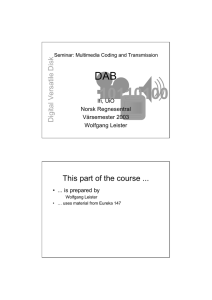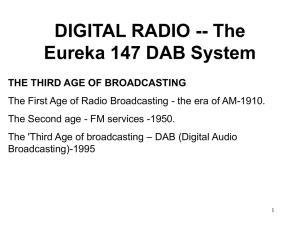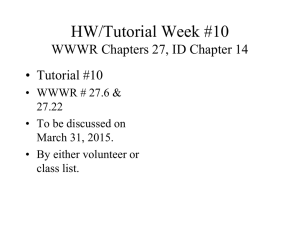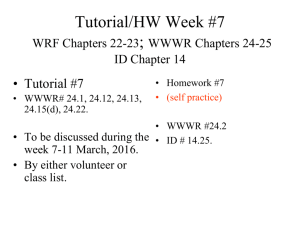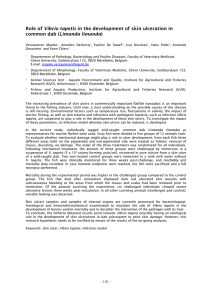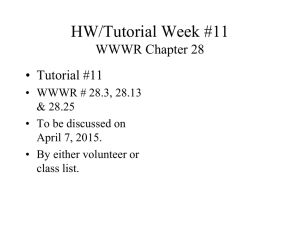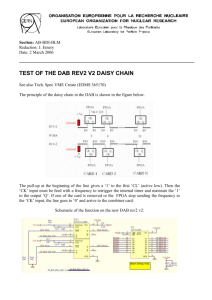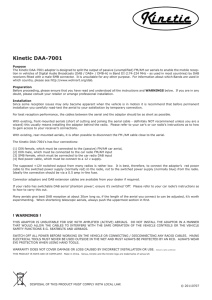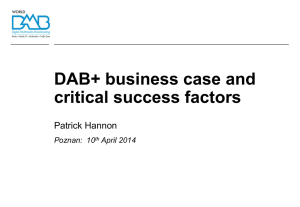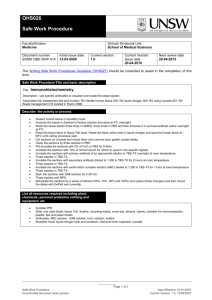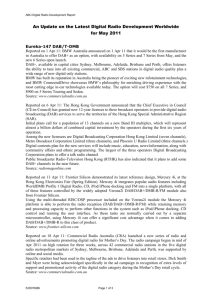Lecture 8
advertisement
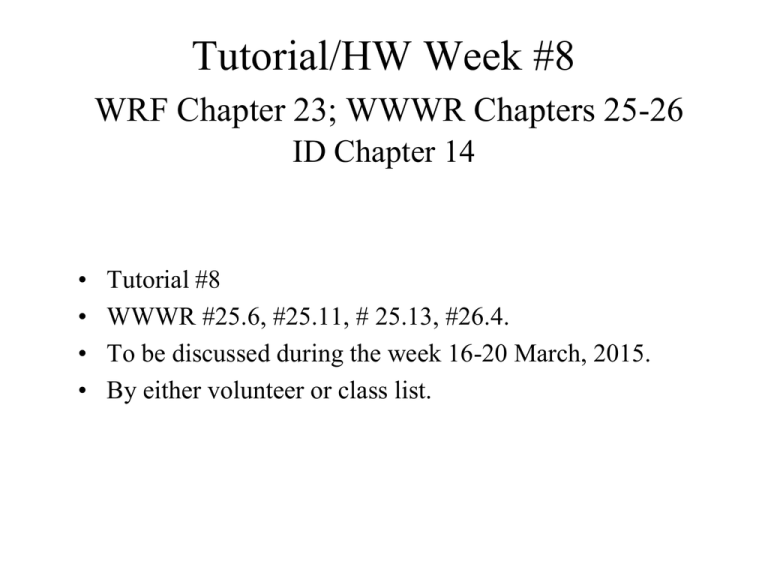
Tutorial/HW Week #8 WRF Chapter 23; WWWR Chapters 25-26 ID Chapter 14 • • • • Tutorial #8 WWWR #25.6, #25.11, # 25.13, #26.4. To be discussed during the week 16-20 March, 2015. By either volunteer or class list. Special Forms • Combining the flux equation with the continuity equation, n A DAB A A n A n B A DAB A A v rA 0 t N A cDABy A cAV c A cD ABy A c A V RA 0 t • Assuming constant and DAB, we get c A 2 v c A DAB c A RA t • Additionally, if there are no reactions, then c A v c A DAB 2 c A t or Dc A 2 D AB c A Dt • And if there is also no fluid motion, v = 0, c A 2 DAB c A t Which is Fick’s second law of diffusion • For steady state process, constant and DAB, v cA DAB cA RA 2 With no chemical reaction and no fluid flow, becomes cA 0 2 which is the Laplace equation for molar concentration. Initial and Boundary Conditions • Initial condition: e.g. t = 0, CA=CA0. • Boundary condition: • (a) The concentration of the transferring species A at a boundary is specified. • (b) A reacting surface boundary is specified. Example 1 Example 2 Example 3 R2 R2 R1 Review #2: Convective Heat Transfer & Mass Transfer Fundamentals • Please Refer to Appendix 8.
